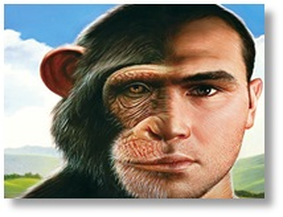We hear a lot about science these days, especially related to the COVID pandemic and climate change. It is often accompanied by something like, “We’ve done the research and science says such-and-such, therefore, you must take the following action….”
It all sounds so authoritative and often mystical. It can also be intimidating because you may not like what you’re being told to do, but you don’t feel you are in a position to scientifically refute what’s being pronounced.
And what’s the purpose of science? Is it simply a tool to help us discover the truth about the world in which we live? You’d like to think so, but that’s not always the case.
Try this on for size:
“Two stories are possible. The first is creationist: God made man with some purpose that involved man’s ability to appreciate and worship God. Let’s forget that story. The whole point of science is to avoid such stories.” Leonard Susskind (Physicist/Atheist)
“The whole point of science is to avoid such stories?” Really? Says who? Well, since you asked… a lot of people!
A fast one has been pulled on us, and most didn’t even realize it. What am I referring to? The definition of science has been changed, without fanfare or public notification.
Most people don’t realize it, but most major areas of science today were founded by Bible-believing Christians! Would you like a few examples?
Antiseptic Surgery
Bacteriology
Calculus
Chemistry
Computer Science
Electronics
Electrodynamics
Electromagnetics
Fluid Mechanics
Galactic Astronomy
Gas Dynamics
Genetics
Hydraulics
Hydrostatics
Oceanography
Optical Mineralogy
Paleontology
Pathology
Physical Astronomy
Stratigraphy
Thermodynamics
Thermokenetics
Vertebrate Paleontology
The Scientific Method
Science owes its origins to Christianity. It was birthed out of the Christian worldview. It was a given that God existed and that He created the universe (i.e., Scripture clearly teaches this, and it also seemed intuitive and logical). Since God is a God of order, it was expected there would be order in His created world, so various men set out to study nature and the universe. They discovered lots of regularities, which led them to formulate numerous laws and establish the disciplines of science listed above.
An overly simplified definition of science could be:
“A search for explanations for the natural world around us.”
However, the definition of science has since been hijacked. Notice the subtle but vastly significant shift in phraseology:
“A search for natural explanations for the world around us.”
Now they are only looking for natural explanations. The supernatural is not only no longer assumed, but it is also ruled out from the get-go!
Here’s an interesting and revealing quote from Dr. Scott Todd (Immunologist – Kansas State University):
“Even if all the data point to an intelligent designer, such a hypothesis is excluded from science because it is not naturalistic.”
What’s he saying? Even if all the evidence points to a god, a creator, a designer, we’re going to say, “Well, that’s not science, because science only deals with natural explanations.”
It’s important to note that this decision is a philosophical one, not a scientific conclusion. Therefore, in many scientists’ minds (and in the public educational system which is in lock-step), it is impossible to discover scientific evidence for the existence of God, no matter what they find!
Here’s another transparent admission of the bias behind secular science. This comment comes from Richard Lewontin (Geneticist/Atheist):
“Our willingness to accept scientific claims that are against common sense is the key to an understanding of the real struggle between science and the supernatural. “take the side of science in spite of the patent absurdity of some of its constructs, in spite of its failure to fulfill many of its extravagant promises of health and life, in spite of the tolerance of the scientific community for unsubstantiated just-so stories, because we have a prior commitment, a commitment to materialism. It is not that the methods and institutions of science somehow compel us to accept a material explanation of the phenomenal world, but, on the contrary, that we are forced by our a priori adherence to material causes… no matter how counter-intuitive, no matter how mystifying to the uninitiated. Moreover, that materialism is absolute, for we cannot allow a Divine Foot in the door.”
Imagine you were given the assignment of writing a 100-page paper on the origin of your cell phone. However, there’s one critical stipulation. You cannot anywhere in your paper ever refer to people. You would come up with some pretty crazy explanations regarding how that phone got here without having been purposely designed, developed, and constructed! That’s what much of our secular science books are filled with (i.e., attempts at explaining the origin of the universe and life without ever considering an intelligent agent). There’s a lot of jumping through hoops and hand-waving going on, and we’re supposed to accept all of it without questioning the scientific magisterium.
I am thoroughly convinced that science, in addition to producing advancements in technology and medicine, etc., is an avenue to get a tiny glimpse into the majesty of our Creator, and in turn, give Him all the glory and honor:
The heavens declare the glory of God; and the firmament sheweth his handywork (Psalm 19:1).
I’ll close with sharing a few quotes from Sir Isaac Newton, who is arguably the greatest scientist who ever lived:
This most beautiful system of the sun, planets, and comets, could only proceed from the counsel and dominion of an intelligent Being. … This Being governs all things, not as the soul of the world, but as Lord over all; and on account of his dominion he is wont to be called ‘Lord God.’”
“He who thinks half-heartedly will not believe in God; but he who really thinks has to believe in God.”
“I believe the more I study science, the more I believe in God.”
“I find more sure marks of authenticity in the Bible than in any profane history whatsoever.”
“No sciences are better attested than the religion of the Bible.”









